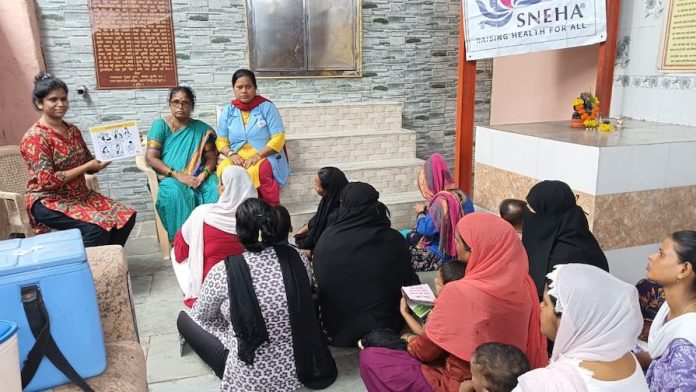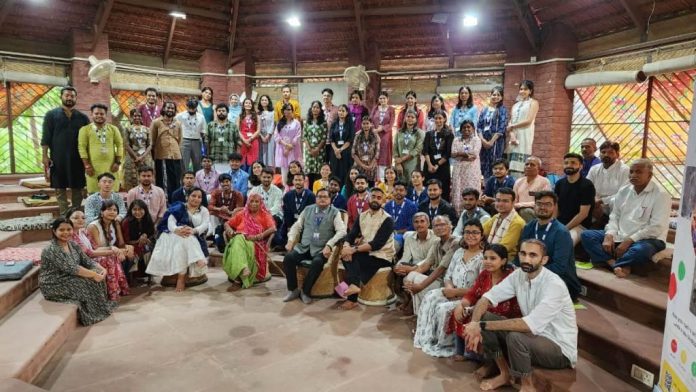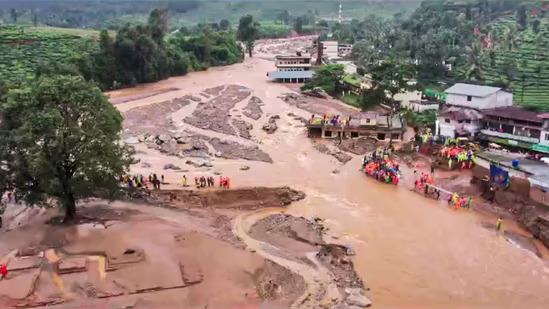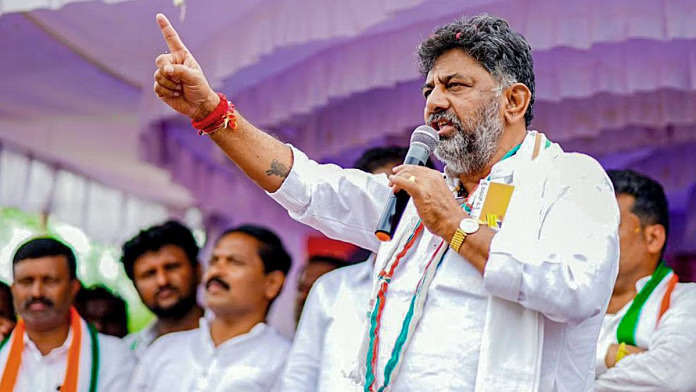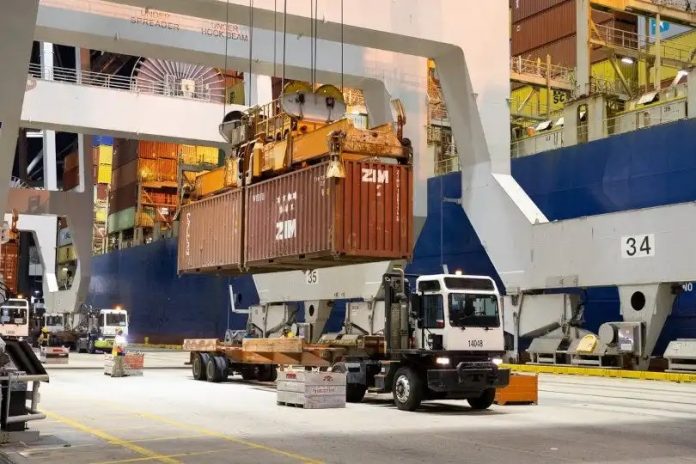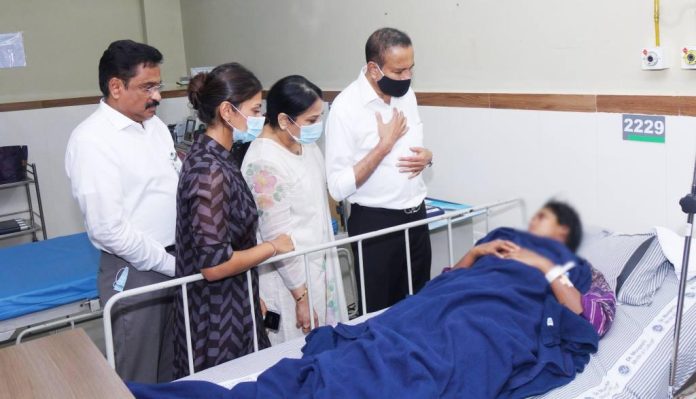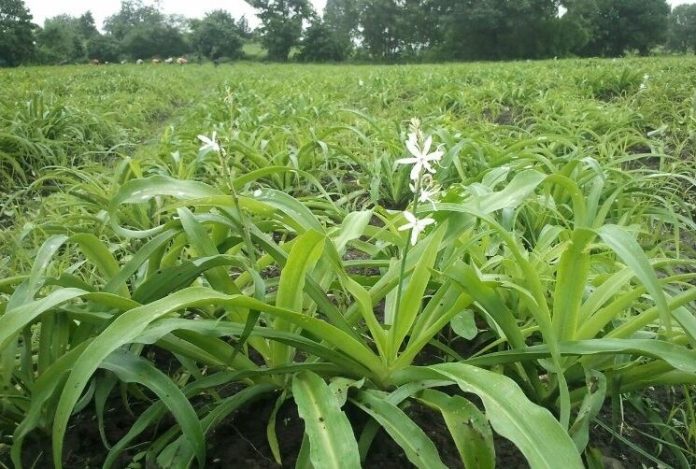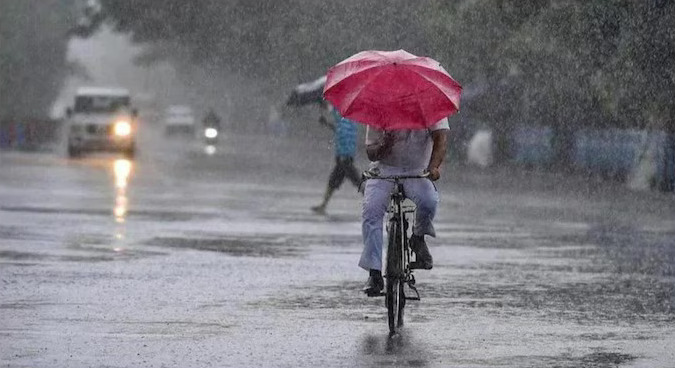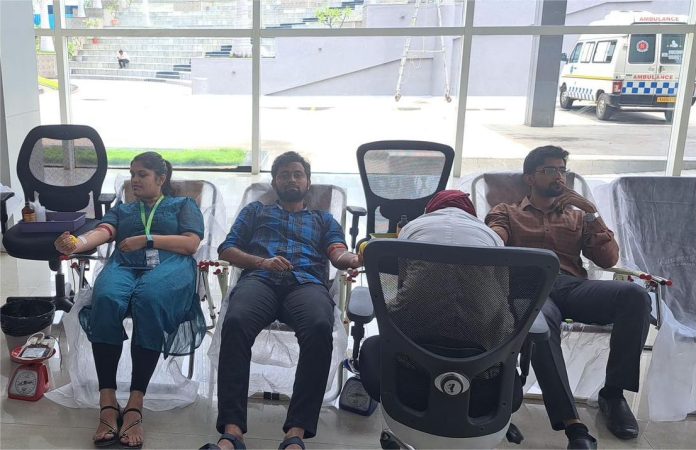CSR: Induction of the 12th Batch of SBI Youth for India Fellowship Programme announced
Jaipur, India: SBI Foundation proudly announces the induction of the 12th Batch of SBI Youth for India Fellowship Program. The inauguration held at Barefoot College-SWRC, Tilonia, Rajasthan, marks the beginning of a 13-month rural development journey for a diverse and passionate cohort of Fellows dedicated to creating positive change in underserved communities across the country. The orientation program was inaugurated by Mr. Sanjay Prakash, MD&CEO,SBI Foundation, Mr. Sanjit (Bunker) Roy, Founder of Barefoot College- SWRC, Ms. Norti Bai, Community Leader, Ms. Bhawana Luthra, Executive Director, LEAD India, Mr. Gyan Prakash, Program Head, SBI Youth for India Fellowship and many other prominent social sector experts, and grassroots leaders.
Youth for India welcomes the upcoming Batch of Fellows for its August and October Cohorts. 51 Fellows have joined the August cohort. Women mark a significant 52% in this cohort intake over men at 48% men who hail from various parts of the country. East & NE Zone stands at 29%, South at 12%, North & Central India at 40%, and Western India at 19% making it a diverse pool of self-motivated people with a common objective to drive change at the grassroots. This year, 69% of the cohort comprises working professionals, bringing a wealth of experience and fresh perspectives to tackle rural development challenges.
Mr. Sanjay Prakash, MD & CEO of SBI Foundation, expressed, “We welcome the August cohort of the 12th Batch of Youth for India Fellows with open arms. Their diversity, passion, and commitment to rural development will be the driving force behind transformative changes in the lives of rural communities.”
Sharing the program’s achievements over the past decade, Mr. Prakash stated, “Over the past decade, the Youth for India Fellowship has empowered more than 580+ change-makers, working in over 250 villages across 20 Indian states and Union Territories, touching the lives of almost 1.5 lakh community members. Many of our alumni have become successful entrepreneurs or pursued higher studies at prestigious institutions globally.”
The SBI Youth for India Fellowship Program, a flagship initiative of SBI Foundation, aligns with the organization’s vision to improve the socio-economic well-being of underprivileged members of society. Through this program, India’s young minds connect with rural communities, understand their challenges and work together to co-create sustainable solutions.
Speaking at the event, Mr. Sanjit (Bunker) Roy, Founder of Barefoot College-SWRC, said,”Over the course of eleven successful Batches, the SBI Youth for India Fellowship has become one of the most esteemed programs for cultivating development professionals in our country. This Fellowship brings together talented and passionate young professionals from diverse sectors and embarks them on an immersive journey, partnering with some of the finest grassroots NGOs in India. Through this experience, our Fellows not only transform themselves but also become catalysts for change,driving transformation within the communities they serve.”
Along with Mr. Sanjit (Bunker) Roy, Ms. Norti Bai, Community Leader from Harmara, Ajmer, Rajasthan & Mr. Ramnivas, Communication Head Barefoot College-SWRC will be welcoming the 12th Batch for their Orientation.
Collaborating with 13 NGOs this year to work on development projects in rural areas, the Fellowship program provides educated human resources to catalyze rural development and secure an equitable and sustainable growth path for India. Witnessing a pan-India talent pool, the Fellows represent a powerful blend of perspectives and insights.
Over the course of the next 13 months, these Fellows will work with rural communities in thematic areas including Health, Rural Livelihood, Food Security, Environmental Protection, Education, Water, Technology, Women’s Empowerment, Self-Governance, Social Entrepreneurship, Traditional Craft, and Alternate Energy.
Disclaimer: This media release is auto-generated. The CSR Journal is not responsible for the content.
Karnataka Government to formulate policy for mandating CSR Funds for Education
The Government of Karnataka is planning to formulate a policy as per which corporates operating within the state will have to direct their Corporate Social Responsibility funds to education. Karnataka Deputy Chief Minister D.K. Shivakumar recently spoke about this while addressing corporate sector representatives at the 47th Annual General Meeting of the Bangalore Chamber of Industry and Commerce (BCIC). According to the minister, the move will help address employment issues in the state.
Speaking at the AGM, the Deputy CM said, “Our aim is to address the issue of employment. We are planning a policy wherein corporates will be mandated to direct their CSR funds to education this year. We are also planning Karnataka model schools and urge corporates to come forward and adopt these schools. Jobs can be created only if there are job creators, which is industry.”
Karnataka Govt eager to boost Education with CSR funds
This is not the first time that the Karnataka Deputy Chief Minister is urging corporates to donate CSR funds for education. In May this year, DK Shivakumar had expressed his desire to develop Government schools in the state with CSR support. While felicitating Secondary School Leaving Certificate (SSLC) examination toppers from government schools at his Bengaluru residence, Shivakumar has announced his plan to upgrade government schools utilising CSR funds instead of relying on funds from the state.
The deputy CM had at that time expressed that the state government is trying to implement a new education system. He had also spoken about his plans to provide international quality education to Govt School students in rural areas of Karnataka by developing infrastructure of these schools with CSR funds.
In November last year, speaking at the inauguration of the three-day long Bangalore Tech Summit, the Deputy Chief Minister had made an appeal to technology companies to invest their CSR funds for development of rural schools in Karnataka. “I have had discussions with several people including Rishad Premji of Wipro and they have committed to invest Rs 2000 crores to improve the quality of education in rural areas. While companies are strengthening the finances of the government, the companies also expect some incentives from the government. We have to work together,” Shivakumar had said at the event.
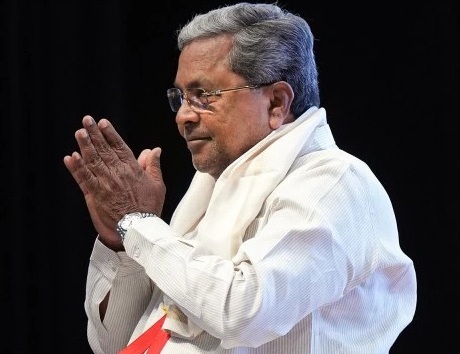
Karnataka CM seeks CSR funds for Kerala
Last week while the landslides were wreaking havoc in Kerala’s Wayanad, Karnataka Chief Minister Siddaramaiah made an appeal to the corporate sector to make Corporate Social Responsibility (CSR) contributions which will be used to support relief efforts in Kerala. The CM sought financial support, logistics for relief operations, and supplies, including non-perishable food items and clothing.
Last week, early on Tuesday two massive landslides hit Kerala, due to which Mundakkai and Chooramala areas under the Vellarimala village of the Meppadi Panchayat were swept away. On day 7 of the ongoing search operations, death toll has crossed 360 while 206 people are still missing from Mundakkai and Chooralmala as per official records.
The Role of Ethical Supply Chain Management in Corporate Social Responsibility
Consumers these days are well aware about activities of various brands. Which is why, they prefer if the brands they support are responsible corporate citizens. However, all of this fades away if the consumers find out, that they are being incriminated in violation of human rights, unethical practices and environmental degradation by the companies because their supply chains are not managed responsibly.
What is Supply Chain Management?
Supply chain management deals with how businesses turn raw materials into finished products. This includes all the processes occurring such as transportation, warehousing, packaging, and distribution of those products to consumers. With increasing climate issues, suppliers take responsibility to not harm the environment, such as regulating their waste and gas emissions production while complying with governmental regulations and increasing their profits. Taking up responsibility of only working with suppliers that follow such ethical guidelines and ensuring that the existing suppliers also adhere to it, constitutes corporate social responsibility through supply chain management.
Environmental Responsibility in the Supply Chain
Environmental responsibility in supply chain includes taking steps to minimise waste generation and pollution while also working towards a sustainable future for all. Companies can purchase and use recycled materials for packaging. It can also purchase technologies that are more energy efficient and produce lesser waste. Another environmental factor is making sure the suppliers implement sustainable processes by setting standards that should be respected and implemented. Suppliers can also be trained on environmental protection to ensure they understand the importance of sustainability. In addition, having a team that can track the company’s environmental footprint to gather information can help the company plan better for its future.
Philanthropic Responsibility in the Supply Chain
Companies need to come up with goals to maximise their positive social impact. The supply chain does not only involve suppliers, vendors, or workers but also communities. As a company, it is important to actively show support to global and local initiatives that address socially critical issues such as racism, education, equity, and affordable health care (or to nonprofit organizations that do) to strengthen the bond within the community where they operate. Also, supply chain management can support sustainable development projects in local areas but also offer scholarships to students studying majors related to sustainability or the supply chain that support the UN Sustainable Development Goals and help to enhance human rights.
Another way to incorporate CSR into business practices is by volunteering time to nonprofit organisations, increasing employee engagement. Because work can be stressful, it is important to create experiences where people’s needs for accomplishment and personal interests are met with humanity’s needs; it helps to increase job satisfaction, bringing greater pride to one’s self and to the company.
Ethical Responsibility in the Supply Chain
To improve ethical responsibility, supply chains should ensure all suppliers or vendors conduct fair labour practices. Companies should build on treating everyone with dignity and respect and offer equal employment opportunities. Being ethical means to be fair, honest, and having morals. Supply chain workers deserve to be heard and accepted in their workplace.
In order to implement CSR in the supply chain, companies should emphasize having procedures in place to assure health and safe working conditions for their workers and suppliers. These include offering health and safety training to everyone, providing legal rights so they can speak up in case any injustice is observed.
It also means having a team of experts who monitor any violation of the company’s code of conduct such as forced labor, child labor, unpaid overtime work, abuse, and sexual harassment within supply chain operations and act accordingly. In addition, the value of more diverse and inclusive corporate supply chains should be encouraged. It also means increasing the number of managers, suppliers, and recruiters from underrepresented communities in supply chain management.
Economic Responsibility in the Supply Chain
Economic responsibility involves making financial decisions while contributing to the environment and society. This can include committing to providing a fair and transparent salary to all employees or investing in renewable energy. It can also mean spending money for a positive long-term impact such as investing in educational programs or more sustainable suppliers.
Many consumers respond well to brands that are known to be environmentally friendly. Even though it is a collective battle, companies play an important role in encouraging sustainable initiatives, and there is still a need for improvement within CSR. With growing environmental concerns, more companies are searching for new practices to change their business model so they can show transparency with respect to the environment, their customers, and their employees.
Conclusion
The supply chain is an integral part of most businesses and is essential to company success and customer satisfaction, so it is also important to consider whether all suppliers, all workers, and other companies in the supply chain implement CSR activities and practices.
CSR Boosts Farmer Income by Supporting Safed Musli Revival in Nashik
Nashik, India: Blue Dart Express Ltd., South Asia’s premier express air, integrated transportation, and distribution logistics company, proudly announces its collaboration with the Swades Foundation to revitalize Safed Musli cultivation in Nashik as part of its Corporate Social Responsibility (CSR). This joint initiative has significantly enhanced farmer incomes and provided an innovative solution for crop diversification.
Safed Musli (Chlorophytum borivilianum), a high-value tuber crop renowned for its medicinal properties, such as enhancing vitality, boosting immunity, and addressing gynecological disorders, had been critically endangered due to unsustainable collection and habitat loss. The tropical climate and altitude of Surgana taluka in Nashik create an ideal environment for cultivating this valuable herb. However, the high cost of planting material had deterred widespread cultivation.
Swades Foundation, a grassroots organization dedicated to rural empowerment, partnered with Blue Dart in FY’23-24 to conduct a pilot program involving 82 households in Nashik, each cultivating Safed Musli on 5 gunthas (5,000 sq feet) of land. Through comprehensive training and support from Swades, farmers were introduced to Safed Musli cultivation, provided with high-quality planting material, and guided throughout the crop cycle to the post-harvest stage. The results were remarkable, with farmers achieving a yield valued at Rs. 1,200 per kilogram, leading to an income of Rs. 28,575 per household.
Following the pilot program’s success, approximately 60% of the participating farmers planned to expand their cultivation area to 20 gunthas (20,000 sq feet) this year. This expansion is expected to generate an income of Rs. 1-1.2 lakhs over a 3–4-month period in FY 2024-25. The crop not only enhanced soil health through diversification but also provided a substantial income boost, helping uplift farmers in the poorest-of-the-poor (POP) category.
The initiative’s success has driven demand for Safed Musli cultivation across Swades geographies in Nashik. In FY 2024-25, the program aims to reach 54 Gram Panchayats in four blocks of Nashik, engaging 800 more farmers. Additionally, Swades Foundation plans to establish a first-of-its-kind Farmer Producer Company (FPC) dedicated exclusively to Safed Musli.
Disclaimer: This media release is auto-generated. The CSR Journal is not responsible for the content.
Addressing healthcare disparities: Strategies for ensuring equal access to health
Over the past few decades, India has seen a remarkable improvement in its trade and infrastructure and is now poised to become the third-largest economy soon. However, Healthcare, a key driving force for this growth, still faces a significant challenge with uneven distribution of services and resources across India.
The healthcare landscape in India is marked by significant disparities in terms of access, affordability, and quality. A study based on the India Human Development Survey (IHDS) found that household income directly determines the state of individual health. People from high- and middle-income households are less likely to fall sick than those from low-income households. Further, as we add layers of marginalisation, such as disability, region, age (elderly and children), and gender the accessibility and affordability concerns become only more complex.
Rising Healthcare Disparities
Despite more than half of the country’s population (65%) residing in rural India, 73% of healthcare services are concentrated in urban areas. This forces people in villages and smaller towns to invest considerable time and money travelling to cities for treatment. The overwhelming out-of-pocket expenditure on healthcare drives nearly 55 million people into poverty every year.
Ideally, Primary and Community Health Centres (PHC & CHC) should be lifelines for the people living in rural areas. However, limited resources and manpower affect efficiency in effectively catering to the rural population. As per the Rural Health Statistics Report, 2022-23, less than 50% of PHCs across the country are functional. Of the 5400+ CHCs which function as referral centres, only 541 had the required number of specialists. The lack of diagnostic facilities and medical equipment, and the prospect of long travel deters people from seeking healthcare promptly, which can exacerbate symptoms. Further over-stretched health workers are not able to cater effectively to communities, which ultimately has a detrimental impact on preventive healthcare.
Philanthropic aids to complement government efforts
While sincere efforts have been made by the Indian government to improve healthcare infrastructure and services, there are still significant gaps, particularly in rural and underserved areas. A possible solution for this can be an increase in philanthropic contributions by different organizations which can complement government initiatives.
Philanthropic and CSR initiatives can aim to strengthen the infrastructure of primary, secondary, and tertiary healthcare. Providing new and updated equipment, increasing the number of beds, and fortifying emergency services can enhance the capabilities of the healthcare system.
Philanthropic initiatives can also bring in the much-needed capital to train a higher number of health workers and help local hospitals and medical facilities create an ecosystem which retains them. Continuous professional development and capacity-building programs ensure that these professionals are equipped to handle a wide range of health issues and provide high-quality care.
With trained health professionals in place, it becomes easier to provide telehealth, point-of-care diagnostics, and remote monitoring services to people in underserved areas. Besides rural settings, these services can also be essential for the elderly, and persons with disabilities. Point-of-care services can be promoted through Mobile Medical Units (MMUs) that are equipped with essential medical and diagnostic tools. They form the first step towards providing preventive care, specialist consultations, and referrals to higher-level healthcare facilities when necessary.
Corporates and philanthropies are increasingly piloting innovative models to increase coverage for national initiatives in underserved areas through programs leveraging community-based models as well as the latest technologies. Specialized telehealth as well as mobile clinics and AI-based detection systems are targeting issues as varied as cancer screenings, TB detection and pulmonary diseases, and neonatal health screenings in addition to providing primary healthcare at the doorstep.
Meaningful partnerships
Forming partnerships with local healthcare institutions, national institutes, community organisations, and government authorities is crucial for reaching a larger number of people. These collaborations also facilitate knowledge exchange, capacity building, and the sharing of best practices. Working together with these entities ensures a unified approach to tackling healthcare disparities. It also eliminates overlapping efforts and parallel structures that may cause investments to scatter and dilute the overall effectiveness of health facilities.
Collaboration with local healthcare institutions and aligning with government schemes also provides large data sets which are critical to identifying further gaps and solutions. Regular reviews and adjustments based on the evaluation of these data ensure that healthcare interventions remain effective and responsive to the needs of the population.
Health awareness campaigns play a pivotal role in educating communities about available services and promoting preventive health measures. By collaborating with local organisations, schools, and authorities, these campaigns can effectively increase healthcare-seeking behaviour and reduce stigma around health issues. Community engagement ensures that health messages are culturally relevant and widely accepted.
The Way Forward
The devastation and the loss India and the world experienced after the COVID pandemic has made it abundantly clear that neither lives nor the economy can survive without adequate healthcare. It is also becoming increasingly clear that we must look at ways in which commercial or private capital can be infused into the sector to encourage solutions for sustainable and long-term transformations in underserved areas and communities.
The need of the hour is for all stakeholders to collaborate and work towards the unified vision of achieving healthcare for all. Philanthropies stand as a bridge between people, government, and the private sector – their role in ensuring that every person enjoys their right to good health and well-being is indispensable.
Views of the author are personal and do not necessarily represent the website’s views.
Ms. Shweta Rawat is the Founder & Chairperson of The Hans Foundation. Together with Mr. Manoj Bhargava, she founded the organization in 2009 and has played a key role in defining the goals and direction of the organization since. Ms Rawat has led the foundation to significant achievements right from its inception through her passionate belief in the core vision and mission of the organization. She emphasizes disability projects as a key part of The Hans Foundation’s efforts. Understanding the need to develop the holistic well-being of marginalized communities, Ms. Rawat focuses on programs that reach the last mile and ensure long-term positive outcomes for communities.

